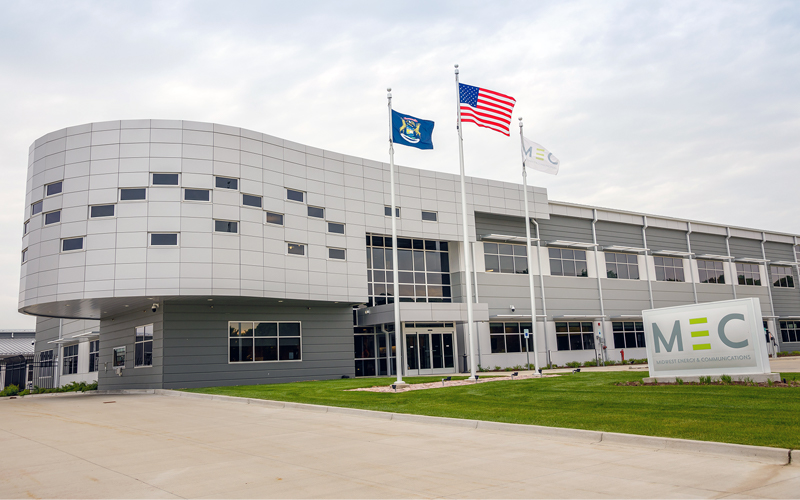Our Story
Who is Midwest Energy & Communications? In the simplest of terms, our vision is to create vibrant, relevant and sustainable rural communities.
Making Something from Nothing
In the 1930s, large utility providers refused to bring power to the rural space. This left many people, like farmers, dealing with not only the Great Depression, but the additional hardship of not having electricity.
Rather than accept that they had been left in the dark, country residents began to form rural electric cooperatives to do what the big players wouldn’t. Ours is the story of two of these cooperatives: Southeastern Michigan Rural Electric Cooperative, and Fruit Belt Electric Cooperative, both born in 1937.
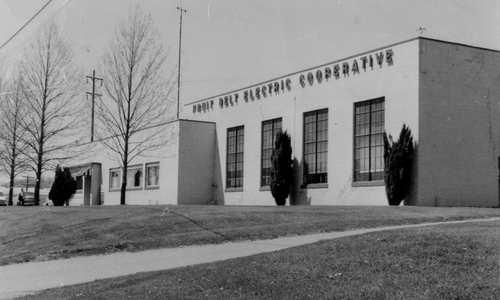
Humble Beginnings
On July 30, 1938, Fruit Belt energized lines to its first 133 customers. In 1940 it merged with Van Buren Electric Cooperative, and that same year, a diesel generating plant in Cassopolis was completed. The plant allowed The Little Co-Op That Could to provide 3,580 customers with power.
The diesel plant operated until it became obsolete, and in May 1951, it shut down for good. In its place, Fruit Belt put a new 69,000-volt transmission line and substation into operation. Instead of generating its own power, the cooperative now purchased it wholesale from Indiana and Michigan Power.
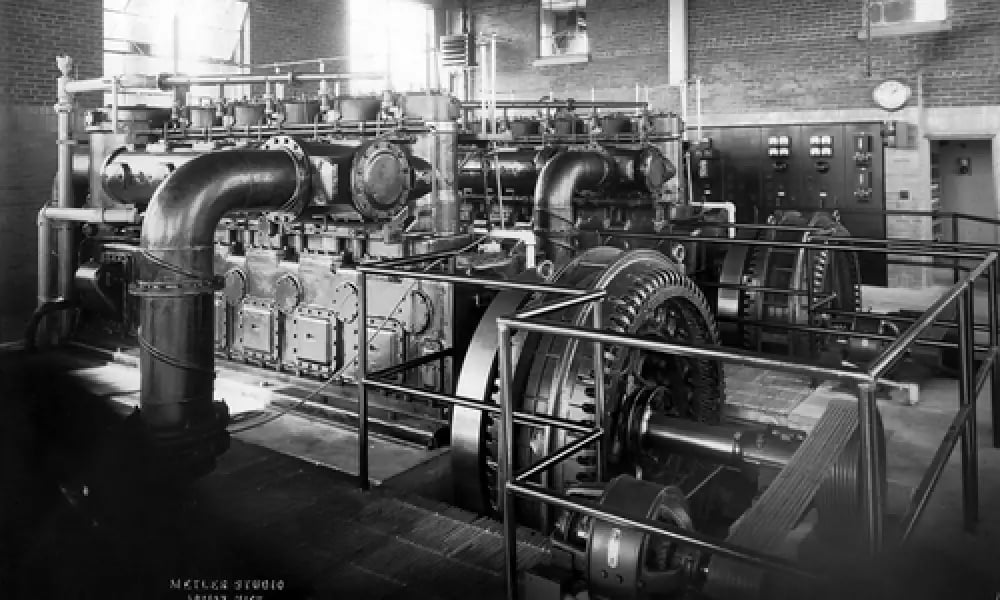
Changing With The Times
For the next few decades, Fruit Belt celebrated smaller milestones: the 1000th security light installed in 1963, the move to a modified IBM system for billing and record-keeping in 1968, and the first bucket truck put into service in 1976.
The cooperative launched its smart grid in 1982, featuring load control and the Supervisory Control and Data Acquisition (SCADA) system. The new computer-based grid gave Fruit Belt a better way to manage its equipment and reduce the impact of outages.
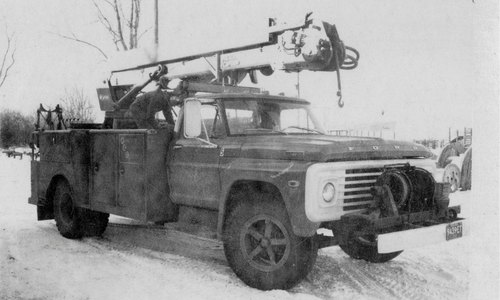
Becoming MEC
Finally, in 1997, something beautiful happened: Fruit Belt Electric Cooperative and Southeastern Michigan Rural Electric Cooperative (remember them?) held merger discussions. The two cooperatives, each serving opposite sides of southern Michigan, would join under a new name. When we next opened our doors in 1998, it was as Midwest Energy Cooperative.
Since then, MEC has embraced the same spirit as our Depression-era forerunners, transforming the rural space by delivering first-in-class innovations and solutions where others won’t. We launched our propane operation in 1998, with smart meters coming shortly after in 2004. In 2015, we introduced our fiber internet service, bringing high-speed connectivity to rural areas with slow or no coverage.
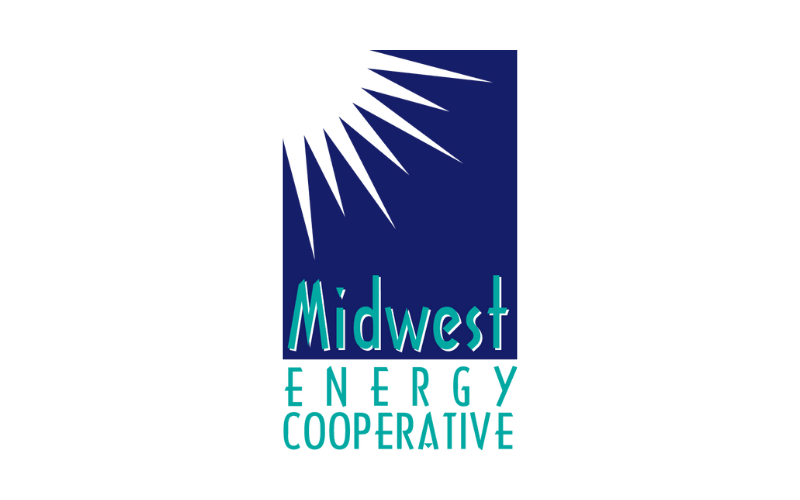
Making Connections
Why did an energy provider get involved in fiber internet?
Since most of our customers live in rural areas, they’re impacted by a phenomenon known as the digital divide. Internet service providers prioritize the most populous areas when determining the focus for their fastest, most modern connections. Unfortunately, this leaves those living in the country with slow service, and some have no internet at all. Sound familiar? We wanted to fix that, so in 2015 we launched a project to bring fiber internet to our electric customers.
Beta Fiber InstallFiber technology also gives us the power of real-time monitoring and intelligent control over our electric grid, known as distribution automation (DA). DA identifies and isolates outages and automatically reroutes electricity where possible to reduce impact. In non-outage situations, it helps us monitor equipment and more readily identifies problems.
Ultimately, fiber expansion was the natural next step in MEC’s evolution, and we were awarded $37 million through the FCC’s Rural Digital Opportunity Fund (RDOF) in 2020 to reach more than 30,000 unserved or underserved homes and businesses. In 2023, we received a further $25 million through the state of Michigan's Realizing Opportunity with Broadband Infrastructure Networks (ROBIN) grant program to reach an additional 15,000 addresses. Expanding fiber internet service to rural communities is an exciting opportunity, and one the Fruit Belt founders could only have dreamed of all those years ago.
.png?width=500&height=300&name=MEC%20Building%20(2).png)
Getting SMART
Early in 2016 we inked a deal with the Ed Lowe Foundation to purchase 500 acres of land at the intersection of Decatur Road and M60, and developed about 60 of those acres for our state-of-the-art headquarters facility, which we moved into in 2017. A question followed: what should we do with the remaining acreage?
The answer lied with the namesake of the very organization from which we purchased the land: Ed Lowe. Inventor of cat litter and highly influential entrepreneur, Lowe lived right here in Cassopolis and had a vision of southwest Michigan as a hub of industry and opportunity. We believed the best way to carry on his legacy would be to make that vision a reality.
In 2019, we founded the Southwest Michigan Advanced Research & Technology (SMART) Park. This technology and industrial park offers companies easy access to rail and road transportation and the opportunity to stand out and grow in an area on the cusp of growth and innovation. Learn more at imaginesmartpark.com.
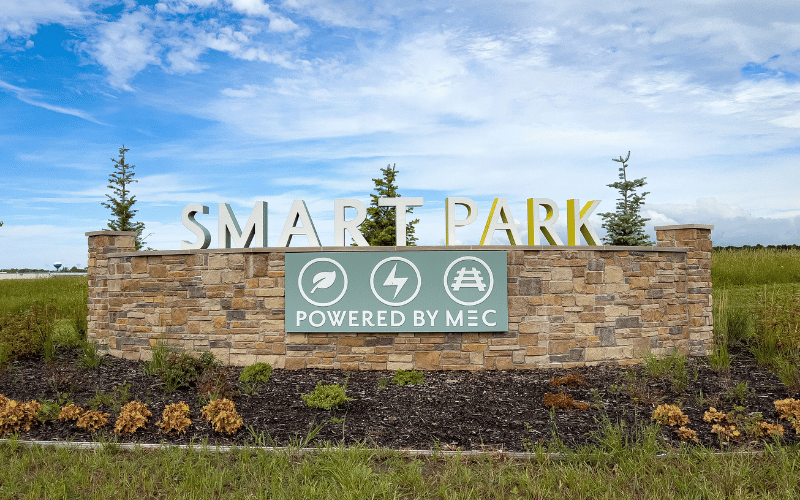
Almost 100 Years Later, We’re Just Getting Started
We celebrated the opening of our new Cassopolis headquarters on Aug. 28, 2017, rebranding one last time as Midwest Energy & Communications to reflect our new, expanded focus. It’s here that we launched our community solar array in 2018, it’s here that we’re beginning our SMART Park development in 2022, and it’s here that we’ll continue to look for new and creative ways to improve our customers’ lives.
At MEC, our goal is unchanged from that of the first cooperatives nearly a century ago. Put simply: we work to ensure that small-town life doesn’t mean giving up on better living.
